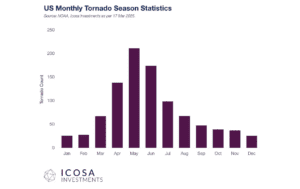RU 926 FCA details Lloyd’s and London market intermediaries’ supervisory approach with portfolio letter
FCA details Lloyd’s and London market intermediaries’ supervisory approach with portfolio letter
The Financial Conduct Authority (FCA) has written to firms in its Lloyd’s and London Market Insurance Intermediaries (and Managing General Agents) (LLMI) portfolio setting out its supervisory strategy for and the key risks posed by firms in that sector. The portfolio letter, signed by Matt Brewis, Director of General Insurance and Conduct Specialists/Supervision & Retail Authorisations, set out the overarching aim in supervising LLMI firms as being to enable the provision of a wholesale market that works well for its participants, customers, and preserves the integrity of the markets.
The letter noted: ‘‘More specifically, we want the wholesale insurance market to be competitive whilst supporting itself to do the right thing, firms to embrace the spirit of regulation, preserve the integrity of the market by being operationally as well as financially resilient, and put the end-customer at the heart of the business model; for example, by having appropriate product governance and oversight of the distribution chain to provide products that meet customers’ demands and needs.’
The letter noted some progress towards delivering good outcomes for customers, particularly around considering the expectations set out in guidance from the FCA’s pandemic related work, as well as the actions of some firms in driving change and reducing the impact of climate change.
‘However, our view in terms of the treatment of customers, is that firms in the portfolio have not fully embraced our key messages (for example around product oversight or firm culture and purpose) or kept up with the pace of regulatory change. We are also disappointed on the progress made on diversity and inclusion, where firms still require substantial changes, both as employers and in serving the diverse needs of customers.’
Issues raised in the LLMI supervisory portfolio letter include:
Product suitability and price transparency – ‘all customers should be able to make informed choices about GI products to ensure that they meet their needs at a suitable quality and price. Customers should not be exploited or targeted with poor value products.’ The FCA said it continued to see customers buying products that may not be suitable, do not offer fair value and provide insufficient cover at the point of claim. It reminded firms of the product governance rules in Pricing Practices Policy Statement PS21/5 and that these rules should be implemented as they had become effective from 1 January 2022. Firms were also directed towards draft handbook rules in Consultation Paper CP21/36 https://www.fca.org.uk/publication/consultation/cp21-36.pdfon the proposed Consumer Duty which placed additional obligations on them.
Uncertainty of insurance cover – the risk posed to customers from a lack of clarity around ambiguous contract wordings or misaligned customer expectations that may lead to uncertainty regarding the extent of cover or confusion about the cover purchased. The FCA cited business interruption as a key example. Firms were expected to have robust product governance arrangements in place
Culture – despite the positive evidence from the market of seeking to improve both culture and products to better serve changing needs of customers, there remains a ‘significant risk’ that poor underlying cultures may lead to poor customer outcomes and impact the integrity of the market. Despite diversity & inclusion (D&I) being on the agenda of more firms, it was felt that there was ‘still a long way to go before the London market becomes a truly diverse and inclusive sector; representative of the society it serves.’
Financial and Operational Resilience – the FCA had identified through its financial resilience surveys that a substantial number of firms had insufficient controls and oversight arrangements in place for client asset arrangements. Many firms had not planned adequately for an orderly wind-down or taken appropriate steps to conserve capital; or considered how to meet future demands on liquidity either.
Firms were also urged to pay particular attention to cyber security and the management of data given the current heightened international tensions. Firms were pointed towards Policy Statement PS21/3 Building Operational Resilience, which would be relevant to some intermediaries in the LLMI portfolio.
The FCA is asking recipients of the portfolio letter to consider the extent of the risks in their business and assess whether they have strategies in place reduce those risks. BIBA members are encouraged to read the portfolio letter in full.
The FCA said that it will continue to engage with LLMI firms over the next two years through its planned programme of work. Firms were encouraged to read the FCA’s Business Plan 2022/23 https://www.fca.org.uk/publications/business-plans/2022-23 and to keep up-to-date with regulatory developments generally.
The FCA will write again to firms in 2024 to provide an updated view of the key risks that firms in this portfolio pose, the extent to which those risks have been mitigated, and to provide an update on its supervisory plans as a result.
BIBA members’ compliance and regulation queries should be directed to: compliance@biba.org.uk quoting their membership number.
The post RU 926 FCA details Lloyd’s and London market intermediaries’ supervisory approach with portfolio letter appeared first on British Insurance Brokers' Association.




